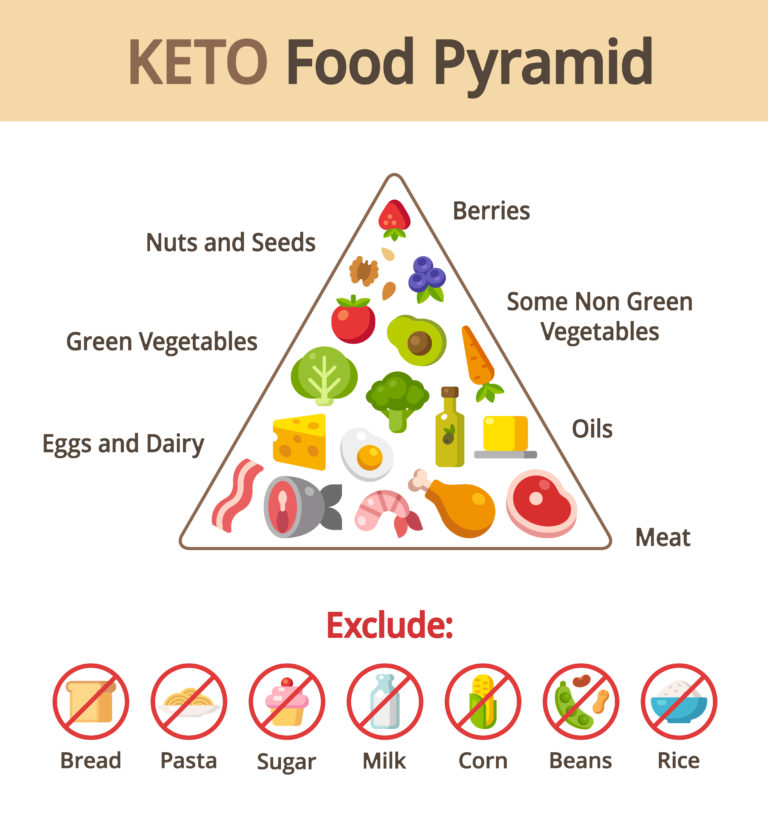Firstly, what the Ketogenic “Keto” diet is a strict regimen of low-carb, high-fat foods that forces the body into a state of ketosis, which is when you burn fat, instead of carbohydrates, for energy and the diet has taken the US by storm. However there are a lot of factors that should be considered when choosing a diet, and we’re going to look at the pros and cons to see if this new diet is right for you.
Let’s face it, this is not just a change in eating habits but a lifestyle change. Like Whole30, where dieters cut out sugar, grains, dairy and legumes for 30 days, and paleo, modeled after eating habits in the paleolithic era, keto has become trendy. With the help of social media and word of mouth, demand for keto-friendly products have gone through the roof. Interest in keto has far outpaced interest in other fad diets. A Google Trends chart over the past year shows searches for “keto” have dwarfed searches for “paleo” “Whole 30” and “intermittent fasting.” Ok, so just because it’s trendy doesn’t mean it’s right for you so let’s first look at the pros and cons of the Keto Diet to help you gauge if it may work for you.
Ketogenic Diet: The Pros
1. It reduces insulin levels (and inflammation).
2. It possibly leads to weight loss.
3. You’ll end up eating more (hopefully healthy) fat.
4. It’s a great way to detox from sugar.
Ketogenic Diet: The Cons
1. It can be quite difficult to follow.
2. Many people end up eating fats that aren’t so healthy.
3. It may not promote significant long-term weight loss.
4. You won’t be eating as much heart-healthy, gut-healthy, satiating fiber.
The verdict
Research does reinforce the pros of the ketogenic diet – particularly in its ability to target body fat stores for fuel. However, whether this approach is intended to last long-term is up for debate. The loss of water weight is a short-term solution, for one, and you run the risk of tainting your training with prolonged periods of restricted carbs. Glucose provides fuel for the brain, and muscle glycogen for your time at the gym. If you are serious about building muscle mass or achieving peak sports performance then perhaps going keto isn’t for you. The best advice is: consult your physician to determine whether this diet is good for your personal goals, body type, and lifestyle.
If you want to do the ketogenic diet, and give it a try, here’s what we recommend:
- Choose the healthiest fats you can to make up the 70 to 80 percent: egg, avocado (watch out, though; these do have a few net carbs), and almonds (they do have some net carbs, but the fiber is helpful) are my favorite picks.
- Include as many greens as you can—they’re lower in carbs and packed with nutrients.
- Try to get organic/grass-fed animal products whenever you can, including cheeses, eggs, other dairy products, and animal meats of all kinds.
- Drink plenty of water. With more fat and less fiber (generally), you can get a little constipated, so water helps.
- Assess as you go, how you feel, and keep a journal of your progress that you can track.

